First newborn vaccine: what is it for and when is the hexavalent vaccine done
The first vaccine of the newborn is carried out when the child turns the second month of life. While it may seem too early for some parents, at 2 months the baby's immune system is able to respond well to vaccination and by delaying this time, it would only expose the baby to infections that the vaccine could prevent. Before we delve into the matter, see in this video how the development of the baby is progressing.
What is the newborn's first vaccine?
The hexavalent vaccine is an intramuscular injection, typically given in the thigh, a single vaccine that protects against six diseases at the same time.
- anti diphtheria vaccine
- tetanus vaccine
- pertussis vaccine
- polio vaccine
- hepatitis B vaccine
- invasive disease vaccine from Haemophilus influenzae type B (HiB)
It is a "single sting to be repeated three times during the first year of life, which protects children from six diseases which, although they are now rare, can be extremely dangerous if they have to be contracted.
For some parents, thinking of six diseases all together can be frightening, but in reality the "vaccine burden" on the immune system is entirely sustainable even by a tiny body like that of newborns. The vaccine works because it contains antigens, particles that can stimulate the immune system. Specifically, the antigens contained in the hexavalent vaccine are in all 23. Curiosity: just think that in the first hours of life a newborn comes into contact with over a million different antigens!
See also
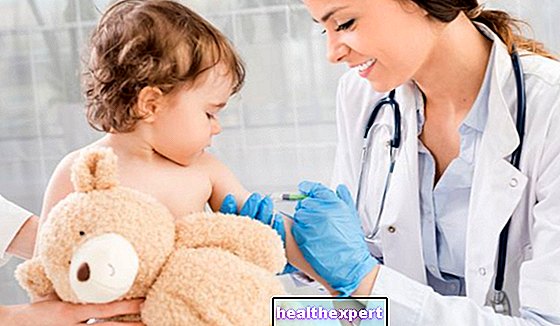


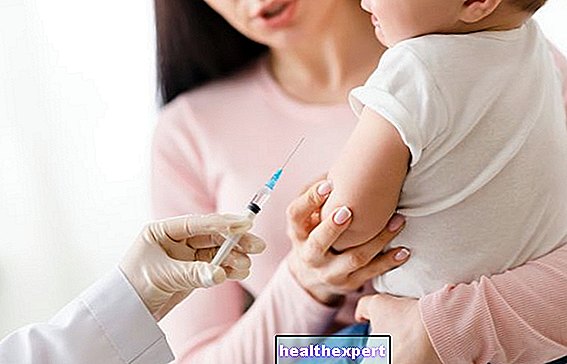
Infant's first vaccine: which diseases does it protect against?
Here is a list of the six diseases that are difficult to get once the baby's first vaccine is given.
Tetanus: This is a non-contagious infectious disease caused by a bacterium. It involves spasms and muscle stiffness that can also affect the lungs and therefore breathing; it is a painful disease, which in some cases can lead to death.
Hepatitis B: is an infectious disease caused by a virus that affects the liver and causes loss of appetite, nausea, jaundice and joint pain. In some patients, the disease can enter a second, more severe stage, with chronic liver cirrhosis, leading to death.
Pertussis: it is a very contagious infectious disease that can worsen and cause disabling and permanent damage, especially in children under one year of age. To protect infants who still cannot be vaccinated, vaccination of the pregnant mother, around the 28th week, is strongly recommended.
Poliomyelitis: is a serious disease caused by a virus that attacks the nervous system. It can occur without symptoms or with mild flu-like symptoms. In severe cases it can lead to brain infections and paralysis that can even be permanent. If it affects muscles that are important for vital functions, it can even be fatal.
Diphtheria: This infectious disease is also caused by a bacterial toxin. It can manifest itself in different ways, but the most serious symptom is a sore throat, which can rapidly progress, causing infections in the respiratory, heart and kidney and nervous system, with possible life-threatening complications.
Diseases caused by Haemophilus influenzae type B (Hib): This is a group of infectious diseases caused by a bacterium that can affect several organs. It usually occurs with mild symptoms, such as flu, but in some cases the infection can evolve into diseases such as arthritis, otitis, pneumonia, meningitis, blood infection and more, with the risk of serious complications and death.
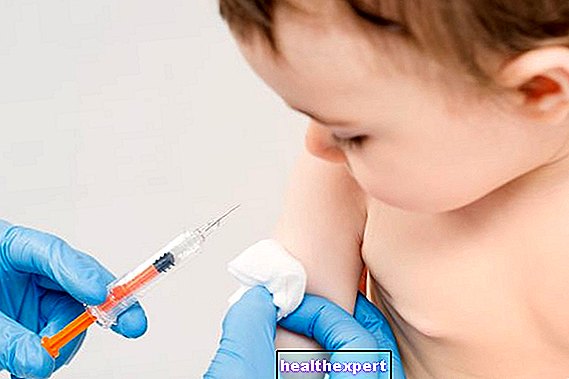
When is a newborn baby's first vaccine?
As already mentioned, the first vaccine of the newborn is the hexavalent vaccine that can be administered starting from the second month of life.
There are three doses in total: the first in the second month of life, the second dose in the fifth month and the last in the eleventh month of the infant's life. Only with these three doses is complete coverage useful against diseases preventable by this vaccine.
Hexavalent is part of the mandatory vaccines provided for by law. Vaccinations against 4 other well-known diseases are also mandatory: measles, mumps, rubella, chicken pox.
Risks and side effects associated with the infant's first vaccine
The hexavalent vaccine is considered to be a very safe vaccine, but that doesn't mean it won't carry any unwanted or side effects. Like all vaccines and drugs, even the newborn's first vaccine can carry some risks, although cases are very rare.
As reported by official documents of the "World Health Organization and from "Italian drug agency, the most common adverse reactions caused by hexavalent vaccination are: drowsiness, loss of appetite, vomiting, redness and hardening of the injection area with swelling, fever, irritability. If you are wondering how long the side effects last after the first vaccine, you can stay quiet: within a few hours or at most a few days, everything will return to normal.
There are also more serious reactions, but we can say that they are much rarer. These include episodes of seizures and severe allergic reactions.
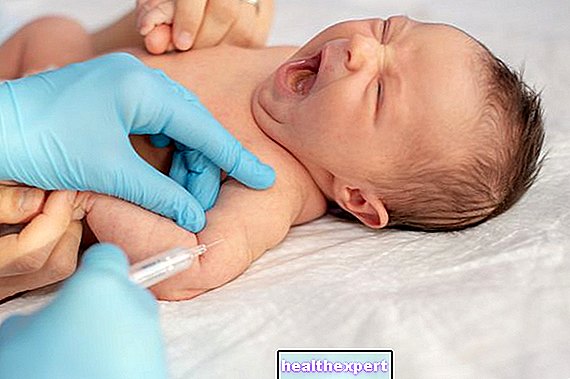
Frequently asked questions about the newborn's first vaccine
Why is it important to vaccinate the child in the 1st year of life?
The hexavalent vaccine, as we have seen, is done in the 2nd month of the child's life, because his immune system already responds actively to vaccinations, avoiding very serious diseases such as those seen in the previous paragraphs. If it is true that the child receives antibodies from the mother that protect him in the very first months of life, these are destined to disappear and here is that the vaccine plays a fundamental role to make up for it.
Could giving more than one vaccine in the same session be dangerous?
No, it has been scientifically proven that administering more vaccines increases their effectiveness, as the protective response of the immune system is enhanced. Not to mention that this avoids the stress of multiple stings for the little one.
Can the child be weakened by so many vaccines?
No, because vaccines strengthen the immune system: the body will be able to defend itself independently when it comes into contact with the infectious agent, without getting sick. Rather, it is diseases, not vaccines that weaken children.
Can breastfeeding replace the vaccine?
Absolutely not, especially with regard to serious diseases such as polio, whooping cough, tetanus etc ...
Can the administration of vaccinations be delayed?
The vaccination schedule has been studied by experts to be as effective as possible. Better to avoid any kind of delay, because doing so exposes the child to the risk of contracting the disease with the resulting side effects.
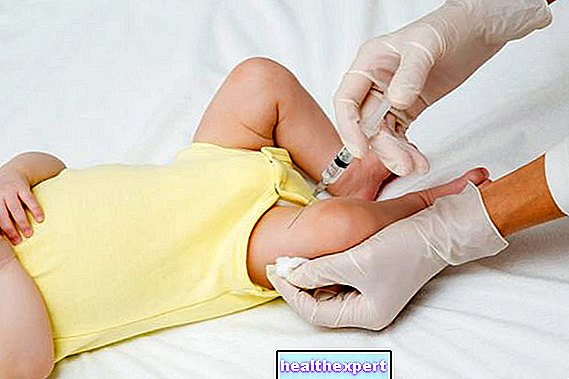
If the child does not attend the nursery, must he still be vaccinated?
The child who does not attend nursery school has a lower probability of contracting a contagious disease, but this is not a valid reason to avoid vaccinations. The vaccination schedule, therefore, must be followed in any case.
Vaccinations and weaning: is it better to avoid them coinciding?
Weaning does not interfere with the efficacy of the vaccine. The only thing that you will notice as a parent is a certain lack of appetite in the newborn immediately after undergoing the vaccination, in a short time everything is back to normal.
What are the compelling reasons for delaying a vaccination?
In this case it will be necessary to rely on the advice of the pediatrician: in the presence of a simple cold, you can proceed with the vaccine without fear. While if serious diseases such as bronchitis, tonsillitis, gastroenteritis occur, then it could be considered to move the time of the vaccine a few days.
If the child has allergies, can they still get the vaccination?
All types of allergies are not considered a contraindication for the administration of vaccines. In any case, you will need to tell your doctor and follow his instructions.